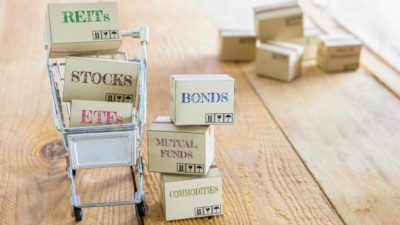If you ask many Canadians what their best investment has been over the years, I’d bet most would say their home, especially at this point in the cycle.
Think about the last decade in Canada’s real estate market. Buoyed by low interest rates, easy borrowing, and a general mistrust of the stock market after the 2008-09 meltdown, the surging real estate market in Canada’s major centres took houses that were bought for $200,000 or $300,000 years ago and turned the owners of these places into millionaires, all without doing much of anything.
Plus, there’s a little bit of bias at play. Even though a house is just a bunch of boards nailed into other boards, we form an emotional attachment to where we live. That attachment and the amount of leverage involved in buying a home—thus amplifying returns—make owning a house seem like a pretty smart move.
But is that really the case? Let’s take a look at the performance of the average Canadian house over the last decade, and compare it to two of Canada’s largest REITs, RioCan Real Estate Investment Trust (TSX:REI.UN), and H&R Real Estate Investment Trust (TSX:HR.UN).
How did the home do?
In 2005 the average home in Canada cost about $225,000. These days, the same house is approximately $450,000, which means the price has roughly doubled over the last 10 years. That works out to a 7.2% annualized return.
But there are costs associated with owning a house. Two of the big ones are property taxes and repairs and maintenance. Both of those will likely set an owner back an average of 1% per year. A homeowner might be able to get away with little in maintenance for a few years, but big things like a new furnace or a new roof can cost close to $10,000 these days.
There are other costs a homeowner might have that a renter wouldn’t, like much higher insurance premiums, the interest cost on a mortgage, and condo fees. We’ll give the homeowner the benefit of the doubt and ignore all those, and just subtract the 2% for taxes and maintenance. Thus, the homeowner’s real return is 5.2% annually.
In the scheme of things, that’s actually not bad. Over the past century the appreciation on a home has barely outpaced inflation. With inflation hovering near 2% for most of the past decade, owning a house has easily beaten its historical benchmark.
How about the REITs?
Let’s start off by comparing the performance of the average Canadian house to Canada’s largest REIT, RioCan. RioCan is the owner of nearly 80 million square feet in retail space, spread out over 340 different locations. Over the last decade, it hasn’t missed a monthly dividend payment.
The huge difference between owning a REIT and owning a house is the income the REIT generates. Back in June 2005, RioCan paid investors a monthly dividend of approximately 6% annually. All investors would need to do is reinvest that dividend to outperform owning a property.
When we combine the dividend reinvestment and capital appreciation, it’s not even close. RioCan returned 9.73% annually over the last decade, and that’s even after shares declined nearly 10% over the last two months. Without that sell-off, we’re looking at double-digit returns.
Results are similar with H&R REIT, one of Canada’s most diversified REITs. H&R has holdings in everything from office to industrial real estate, with a little residential mixed in. It has struggled over the years though, even going as far as cutting its dividend back in 2008.
But even through all the adversity, owning shares of H&R REIT still thumped owning a house. Over the last decade H&R returned 7.66% if an investor used their dividends to buy more shares. It’s actually one of the worst performing REITs in the sector, and it still easily beat buying a house.
Even during one of the greatest bull markets in Canadian real estate history, owning REITs trumps owning a house, especially once you realize the real cost of ownership. That’s not saying Canadians shouldn’t buy a house because there are plenty of reasons to own. Making money on the place just shouldn’t be one of them.







